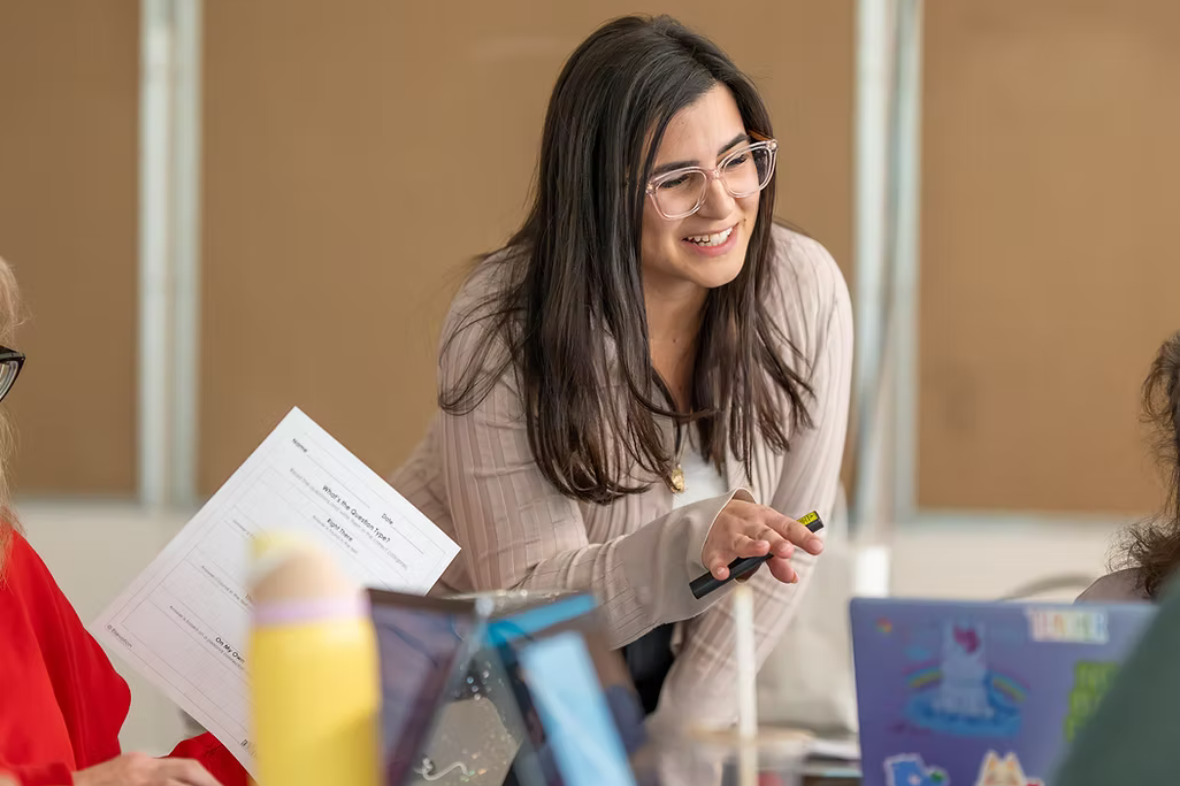Making education better, one teacher at a time

Interviews, News
Meet Shayna Fox-Norwitz, executive director of NE Basecamp, which supports educators in Rhode Island. NE Basecamp was a finalist in our Big Ideas, Bright Cities challenge in 2022.
We talked to one of last year’s participants in our Youth Skills and Employment Accelerator. Here’s Shayna Fox-Norwitz, executive director of NE Basecamp, which supports educators in Rhode Island, who answered our five questions.
We’re intrigued by the name. What is NE Basecamp?
We support educators, often with one-to-one coaching, to give them skills so all students have an equal chance to succeed. Also, we work with principals and superintendents to help one school or an entire district as they create a program or system to enhance their curriculum. Example: In Central Falls and Woonsocket, Rhode Island, we’re working on a program that lets students to request a mentor in a particular career field. Know someone in Rhode Island who works in forensic psychology and can describe it to a student? That’s one match we’re making now.
What led you to direct an education nonprofit?
I taught high school biology, then became a reading specialist. I worked for an education consulting firm and grew frustrated with the lack of resources for teachers. That led me here. We were founded in 2017. Last year, NE Basecamp — that stands for New England, by the way — supported 1,650 educators in more than 70 schools.
What can your work in Rhode Island show us about improving the classroom experience elsewhere?
Like other states, Rhode Island requires that teachers complete professional development. Yet teachers say these programs often are a waste of time and money. So we forge a relationship with a school and its people. We find the best ways to support their efforts to improve academic or social-emotional growth. Because of federal rules, for instance, schools must provide targeted support to struggling students. We help schools educate staff, build teams, and figure out ways to offer that support.
What benefits did you get by being a finalist in our first Big Ideas, Bright Cities Challenge?
I liked the incubator program, which featured monthly Zoom meetings for more than a dozen of us across the country. We’re all working in youth development, dealing with similar challenges, such as helping young people who feel dislocated after nearly three years of a pandemic. I especially liked my conversations with Kimberly McCaffrey at Philadelphia Works, a workforce development group, about how they decide which software programs are more efficient for exchanging data with schools, ensuring the information stays secure. In my job, I simply don’t have the chance to talk about that issue. Also, we did a problem-solving session with different scenarios. Everybody had different ideas. Sometimes you join a workshop and everyone agrees on everything; that’s not necessarily the way to learn.
Any favorite takeaway from the incubator sessions?
I found inspiration in a conversation with Sarah Shaw, founder and executive director of Sidekick Education, which was a runner-up in last year’s challenge. It’s a career advisory service in Madison, Wisconsin that uses artificial intelligence — a chatbot — to answer students’ questions about job fields. When the chatbot can’t answer a question, it connects the student to a counselor or other professional. I’d love to use an app like that for some of our schools. Without the incubator sessions, I would never have known about Sarah’s project.
